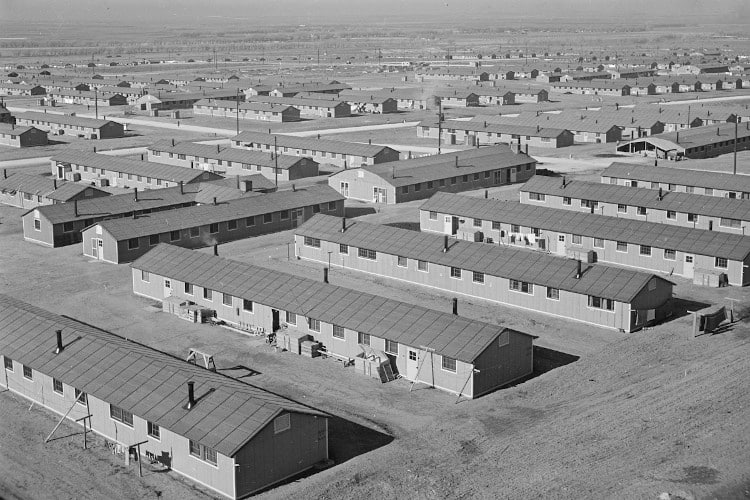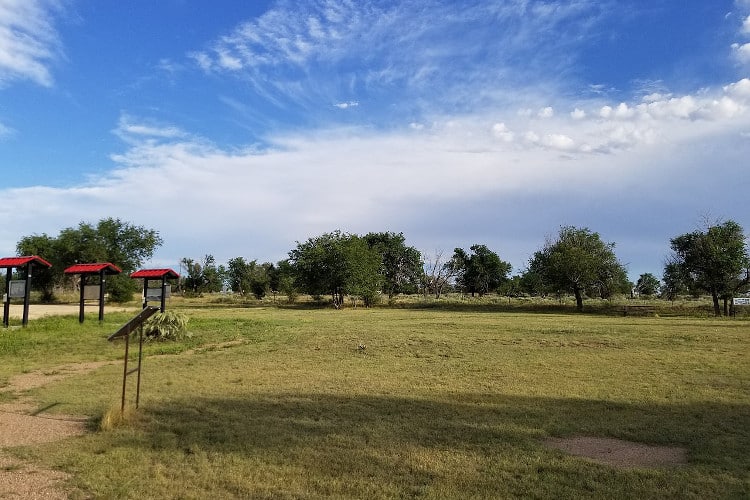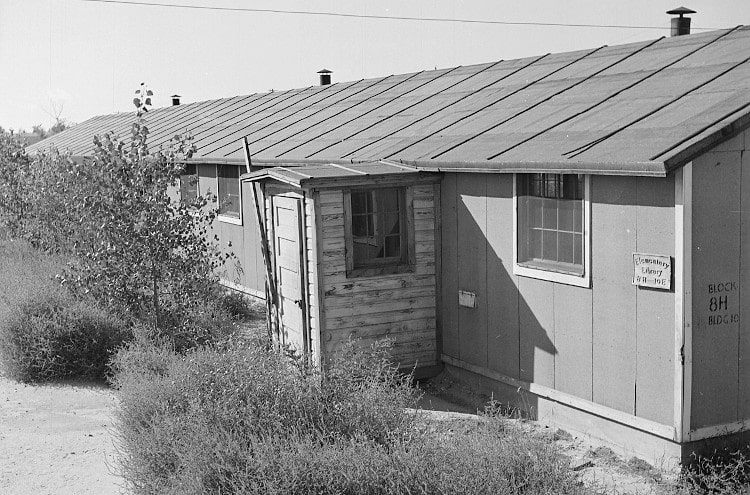
Granada Relocation Center, Amache, Colorado. A general all over view of a section of the emergency center looking north and west. (Photo: Parker, Tom, Photographer via Wikimedia Commons, Public domain)
The U.S. has a new national park—one that spotlights an important episode of recent American history. “Camp Amache,” also known as the Granada Relocation Center, was an incarceration camp for Japanese Americans during World War II. Now, it has been turned into the Amache National Historic Site, safeguarding the memory of this difficult chapter.
Located in rural southeastern Colorado, the Granada Relocation Center was one of ten such facilities. Following the Pearl Harbor attack in 1942, a wave of mistrust led the Roosevelt administration to detain over 120,000 people of Japanese ancestry, even those who were American citizens. Most of them were forced to leave their homes and live in camps, surrounded by barbed wire and armed guards, for the rest of the war.
President Biden designated Camp Amache as a national historical site nearly two years ago. With that, it is now the seventh internment camp from that period to get this designation. To make this a reality, the nearby town of Granada acquired and donated the land needed to establish the new national park. Before that, Amache was listed in the National Register of Historic Places on May 18, 1994, and designated a National Historic Landmark on Feb. 10, 2006.
Just a few days before the national Day of Remembrance of Japanese Incarceration During World War II on February 19, Secretary of the Interior Deb Haaland formally established the Amache National Historic Site. “Today’s establishment of the Amache National Historic Site will help preserve and honor this important and painful chapter in our nation’s story for future generations,” said Haaland in the statement. “As a nation, we must face the wrongs of our past in order to build a more just and equitable future.”
On top of emphasizing the importance of the site, the establishment of Amache as a national park means that it is now eligible for federal assistance. This way, not only they can get funding for protecting the original buildings, but also supporting the maintenance of reconstructed and restored structures from the WWII era, like a barrack, recreation hall, guard tower and water tank.
“Amache’s addition to the National Park System is a reminder that a complete account of the nation’s history must include our dark chapters of injustice,” National Park Service Director Chuck Sams said. “To heal and grow as a nation we need to reflect on past mistakes, make amends, and strive to form a more perfect union.”
Amache National Historic Site, a former incarceration camp for Japanese Americans during World War II, is the newest national park.

View of Granada War Relocation Center from the interpretive signs at the entrance. (Photo: Coasterlover1994 via Wikimedia Commons, CC BY-SA 4.0)
“Today’s establishment of the Amache National Historic Site will help preserve and honor this important and painful chapter in our nation’s story for future generations,” said Secretary of the Interior Deb Haaland in the statement.

Granada Relocation Center, Amache, Colorado. Elementary school block at the Granada Project, Amache, Colorado.(Photo: Iwasaki, Hikaru, via Wikimedia Commons, Public domain)
National Park Service: Website
h/t: [Smithsonian Magazine]
Related Articles:
Poetically Eye-Opening Look at What Winter Looks Like at Yellowstone National Park
337-Million-Year-Old Shark Fossils Found at Mammoth Cave National Park
Wolf Populations Are Making a Comeback in Michigan’s Isle Royale National Park
National Park Service’s Tweets Are So Funny That You’ll Learn About Nature Without Noticing






















































































